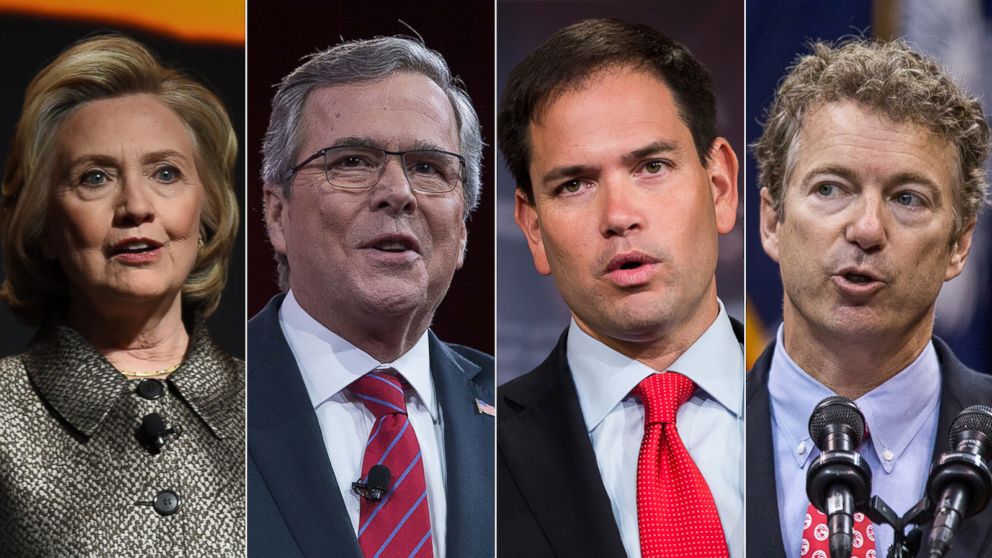Why the 2016 Presidential Candidates Are Waiting to Jump In
From money to media, the pluses and minuses of actually announcing a campaign.

— -- We know they're running -- so why don't they say so?
The looming 2016 presidential campaign has no shortage of putative contestants, from the big-name players like Jeb Bush and Hillary Clinton to the relative unknowns like neurosurgeon Ben Carson and former Maryland Gov. Bob Ehrlich. Most of them are talking and acting like candidates, making frequent trips to early primary states, raising money for their political organizations, lining up campaign staff, and courting support from local Republicans and key activist groups.
But so far, only one has announced he's running for president: Sen. Ted Cruz, R-Texas, officially launched the 2016 presidential race when he announced his candidacy at Liberty University this week.
Some presidential races start earlier than others. In 2008, when the White House was similarly about to be vacated by a second-term president, Hillary Clinton announced her campaign in January 2007, while then-senator Barack Obama and Mitt Romney announced theirs in February. In 2012, things happened a bit later, with Newt Gingrich entering in May and Romney in June.
Things used to get underway much, much later. Sen. Eugene McCarthy didn't announce his 1968 presidential campaign until November 1967. Nowadays, campaigns usually take up much more time, and candidates jump in early.
So what's causing our current contestants to wait?
Big-Timers Don't Need to Declare
For the likes of Hillary Clinton and Jeb Bush, perceived frontrunners whose last names precede them, there's less advantage to jumping in early. Primary voters already know who they are, so the media buzz of a campaign announcement isn't as valuable as it is for someone like Cruz.
"There will always be relative unknowns like Ted Cruz who don't register very high in the national polls but see a benefit in getting out ahead of the pack and establishing themselves early," said Eric Fehrnstrom, a senior adviser to Romney on his presidential runs.
"As a first time candidate in 2008, Mitt Romney found himself in that position and he wanted to get out of the blocks early so he could introduce himself nationally and begin to raise his name ID," Fehrnstrom said. "In 2012, he was in a different place -- he was better known, with an existing support network -- and he could delay an announcement."
It's About the Money
Candidates want to post the biggest fundraising totals they can, especially early in a campaign, in order to appear strong, impress donors and prove they're viable.
For that reason, it makes sense to wait until the beginning of a quarter to start raising money.
"I'd expect a lot of them to announce in early April to give themselves three months to show they have some fundraising chops," said David Keating, president of the conservative Center for Competitive Politics, which opposes current campaign-money restrictions.
Campaigns will report their fundraising totals quarterly in 2015, and the second quarter begins on April 1. According to Keating, it might be a good idea to wait until after the quarter begins to post the biggest-possible numbers in July.
Super PAC Action
Once you're a candidate, you're bound to federal campaign-money restrictions, and you can't solicit donations over the $5,200 limit if that money will be used to support your candidacy.
But until then, you can get away with a little bit more.




